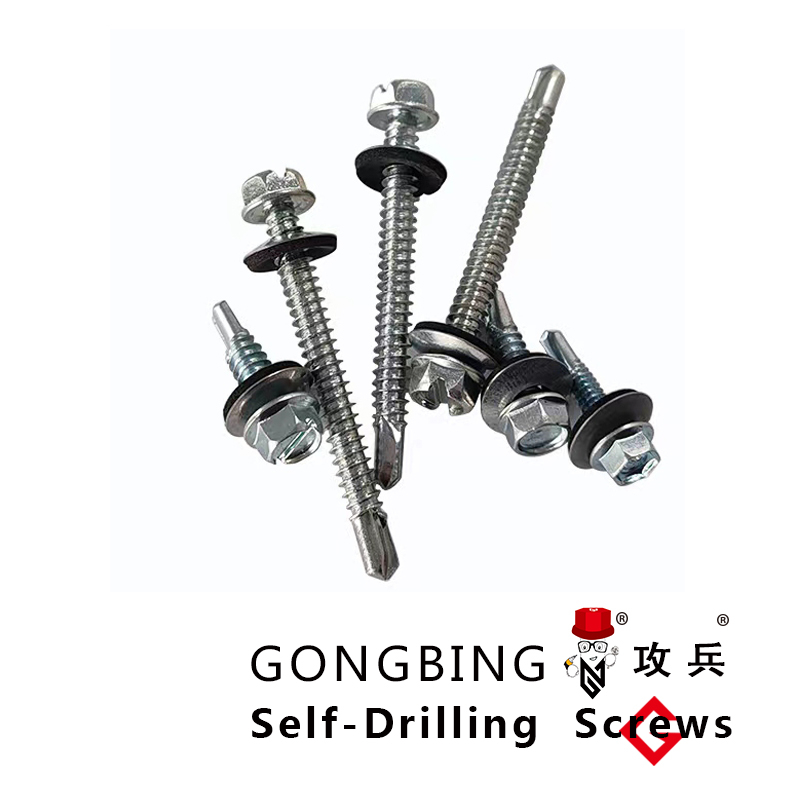Winged Self-Tapping Screws for Enhanced Fastening Solutions and Improved Stability
Understanding Winged Self-Tapping Screws An Innovative Fastening Solution
In the world of construction and manufacturing, fasteners play a crucial role in ensuring the stability and integrity of assemblies. Among the various types of fasteners, winged self-tapping screws have garnered attention for their unique design and efficiency. These specialized screws combine several advantageous features that make them highly effective for specific applications.
What are Winged Self-Tapping Screws?
Winged self-tapping screws are a type of fastener designed specifically to create their own hole during installation. The term “winged” refers to their unique feature small, flat extensions or “wings” that protrude from the body of the screw. These wings serve a vital purpose; they help to ream out a larger hole in materials that may be too hard for standard self-tapping screws. This design allows for easier and more efficient penetration into the substrate, particularly in softer materials like plastics or even some metals.
Self-tapping screws, in general, can be classified into two main categories thread-forming and thread-cutting screws. Winged self-tapping screws are typically thread-cutting, meaning they cut their own threads into the substrate as they are driven in. This eliminates the need for pre-drilling, a feature that can significantly save time in both manufacturing settings and construction projects.
Advantages of Winged Self-Tapping Screws
1. Ease of Use One of the most significant advantages of winged self-tapping screws is their ease of use. In various applications, users can quickly and efficiently fasten components without the need for extensive preparation. The winged design facilitates a smoother entry into the materials, even those that are typically resistant to standard screws.
2. Time Efficiency Traditional fastening methods often require pre-drilling pilot holes, which can be time-consuming. With winged self-tapping screws, the need for pre-drilling is often eliminated, allowing for rapid installation. This time-saving characteristic makes them ideal for large-scale manufacturing and construction projects.
winged self tapping screws

3. Versatility Winged self-tapping screws can be used in a range of materials, including wood, plastic, sheet metal, and composites. Their versatility makes them a preferred choice in various industries, from automotive to electronics, where different materials must be joined together securely.
4. Strength and Security The cutting action of winged self-tapping screws forms a tight grip within the material, providing strong retention. This strength is critical in applications where safety is paramount, such as in structural components or machinery assembly.
5. Cost-Effective By reducing the need for additional tools and processes, winged self-tapping screws can result in lower labor costs and faster project completion times, ultimately leading to cost savings.
Applications of Winged Self-Tapping Screws
Winged self-tapping screws are found in various applications across multiple industries. For instance, in the automotive industry, they are often used for assembling components like panels and frames. In construction, these screws can join drywall to wooden or metal studs, providing a secure hold. Their use extends to HVAC systems, where they can fasten ductwork or insulation materials.
Moreover, the electronics industry benefits from their ability to join circuit boards and housings without the risk of damaging delicate components. In home applications, winged self-tapping screws are perfect for tasks like fastening outdoor fixtures or assembling furniture, where materials of varying hardness may be involved.
Conclusion
Winged self-tapping screws offer innovative solutions for fasteners in numerous industrial applications. Their unique design, combined with their ability to create sturdy connections without pre-drilling, makes them an invaluable tool in the toolkit of engineers, builders, and DIY enthusiasts alike. As technology continues to evolve, we can expect further innovations in fastening mechanisms, but the functional simplicity and efficiency of winged self-tapping screws ensure they will remain a staple in both manufacturing and construction for years to come. Whether you're constructing a building or assembling a product, understanding and utilizing the right fasteners, like winged self-tapping screws, can lead to greater efficiency and reliability in your projects.
-
Weatherproof Plastic Expansion Anchors for OutdoorNewsJun.06,2025
-
Sustainability in the Supply Chain: Eco-Friendly TEK Screws ProductionNewsJun.06,2025
-
Load-Bearing Capacity of External Insulation FixingsNewsJun.06,2025
-
Double Head Bolts: Enhancing Efficiency in Industrial MachineryNewsJun.06,2025
-
Corrosion Resistance in Chipboard Screws: Coatings for Wholesale DurabilityNewsJun.06,2025
-
Butterfly Toggle Bolts : Enhancing Structural ResilienceNewsJun.06,2025
